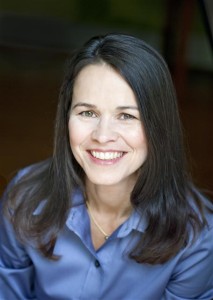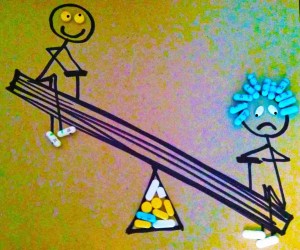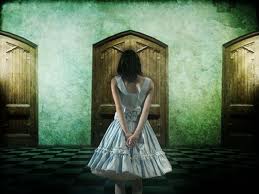“Moderation adorns all things. For without moderation, even things deemed good become harmful.”—Saint Isaac the Syrian
Eight years ago, I was invited to speak to a women’s group in Austin, Texas. It was a weekend-long retreat, and I was to give several talks over three days. I chose as my topic, “The Middle Way: Finding Balance in Our Lives.” The choice came out of my own spiritual journey—from my Protestant upbringing in Mississippi, through years in a religious cult which led to conversion to Eastern Orthodoxy, more years of “new convert radicalism,” and finally, as my heart began to moderate, leaning into balance. I say “leaning in” because I am not there yet. Maybe I never will be. Artists (which includes writers) often live erratic lives, and this may be part of my cross.

With the publication of Circling Faith: Southern Women on Spirituality, last year, it was such a joy to get to know some of my fellow contributors to the anthology. The ones I met in person—sharing our stories with others at book readings—were Marshall Chapman, Barbara Brown Taylor and Marilou Awiakta. (I already knew Beth Ann Fennelly, and I had met Mary Karr and Connie May Fowler. And I had a growing friendship with our wonderful editors, Wendy Reed and Jennifer Horne.) But one of the contributors I haven’t met in person is Debra Moffit.
Debra’s book, Awake in the World, explores spiritual practices from wisdom traditions around the world. Her second book, Garden of Bliss, is coming out in May. Read her recent blog post, syndicated by Beliefnet, “Striking a Spiritual Balance: Equal-Mindedness For All Seasons,” for a taste of Debra’s wisdom.
And here’s the closing paragraph from her essay in Circling Faith, which is called, “Pilgrimage.”
I’ve searched all over for something that is right here at home, but realizing it requires practice. It seemed easier to flee to India or sit alone in the serene Alps and fast. These were small tests. But in contact with people every day, my anger flares, my heart opens and closes. I am challenged to see God in my new husband, in his children, in the cashier at Borders, in the nurse who takes my blood and in myself.
I’ve been asked to speak at the annual women’s E.C.W. Spring Dinner at St. James Episcopal Church in Jackson, Mississippi, on April 25. Some of the women from St. James came to my reading from Circling Faith at Lemuria Books in Jackson last summer, and they want to hear more about my spiritual journey. Unlike Debra Moffit, I’m not a seasoned speaker, so I’m a bit nervous about this event. I’m considering revisiting “The Middle Way” for a progress report on my journey to find balance. But I find my spiritual equilibrium off kilter quite a bit lately, so we’ll see how that works out. In one of his books on understanding human psychology, Robert Johnson describes my experience, and my longing:
To be caught in an exuberant mood is to be wafted off to dizzy heights of inflation and given a wonderful facsimile of the happiness [we] legitimately want. Such a seduction exacts a high price later in the form of a depression that brings [us] down to earth again. Fate spends much time bringing [us] up from [our] depression or down from [our] inflation. It is this ground level which the ancient Chinese called the tao, the middle way. It is here that happiness can be found. This is not a kind of gray, average place or a place of compromise but is the place of true color, meaning, and happiness. It is nothing less than reality, our true home.
 I know people who choose to go off their bipolar meds because they hate the gray. They miss the highs and lows of their disorder. I get that. But don’t we all want to live in a place of “true color, meaning and happiness”? Maybe that place isn’t in the highs and lows. Maybe it really exists in the (sometimes boring) daily routines of our lives. Whether we are sitting down to draft another thousand words, working on a painting, struggling to find just the right lilt for a new song, or shopping for groceries. So maybe it’s not about finding balance. Maybe it’s about finding your true colors.
I know people who choose to go off their bipolar meds because they hate the gray. They miss the highs and lows of their disorder. I get that. But don’t we all want to live in a place of “true color, meaning and happiness”? Maybe that place isn’t in the highs and lows. Maybe it really exists in the (sometimes boring) daily routines of our lives. Whether we are sitting down to draft another thousand words, working on a painting, struggling to find just the right lilt for a new song, or shopping for groceries. So maybe it’s not about finding balance. Maybe it’s about finding your true colors.

Fr Barnabas Powell spoke to us today on this very thing. Both elation and depression are cerebral intoxicants, and we need to be sober.
It is for this reason that the icons neither smile nor weep.
Yeah, it’s that dispassion thing, isn’t it? I get it, on some level, but I struggle with wanting there to be more JOY… even in the expressions on the faces in icons, which I painted for a number of years. A recent convert to Orthodoxy once told me he didn’t like the icons because they looked sad. There’s a lot to explore here. Thanks for reading and commenting.